TANGERINE DREAM were formed during the Autumn of 1967 by Lithuanian artist Edgar Froese, a lover of Surrealism, sculpture and THE ROLLING STONES.
Based in Berlin, Froese became disillusioned by the rock scene at the time, took the band name from a lyric by THE BEATLES and set about forging a musical project which had sonic experimentation at its very core.
With a fluctuating line-up which at its conception included respected synthesist Klaus Schulze, the band finally started to gain recognition and commercial success in 1975 with the now acknowledged ‘classic’ line-up of Froese, Chris Franke and Peter Baumann.
Following the passing of Froese in 2015 and with their founder’s wishes, TANGERINE DREAM continue with a line-up that still exists today of Thorsten Quaeschning, Ulrich Schnauss and Yoshiko Yamane. TANGERINE DREAM are rightly acknowledged as one of the pioneers of electronic music and the body of work they produced (including the Froese / Franke / Baumann era) has had a huge influence on many musicians to follow.
‘In Search Of Hades: The Virgin Recordings 1973-1979’ covers this imperial phase in TANGERINE DREAM’s timeline, featuring a 16CD + 2 Blu Ray set including a lavish vinyl sized booklet and newly remastered versions of the albums ‘Phaedra’, ‘Rubycon’, ‘Ricochet’, ‘Stratosfear’, ‘Encore’, ‘Cyclone’ and ‘Force Majeure’.
The remastering has been done by Steven Wilson from the available first generation master tapes, but what is most interesting for fans of the bands is the inclusion of a host of previously unreleased material including album out-takes, three London concerts and the full 75 minute soundtrack to the Chichester stage play ‘Oedipus Tyrannus’. Although much of the band’s rarer material has been well served with the ‘Tangerine Tree’ / ‘Tangerine Leaves’ band-sanctioned bootleg series, a quality set such as this has been long overdue.
The title of TANGERINE DREAM’s 1970 debut album ‘Electronic Meditation’ is a bit of a misnomer in that the work itself featured no actual synthesizers, but utilised organs, tapes and found sounds including a backwards playback of Froese reading from a ferry ticket. ‘Electronic Meditation’ was free-form and experimental in its nature as were the band’s next three albums; ‘Alpha Centauri’, ‘Zeit’ and ‘Atem’.
Primarily eschewing melody for experimentation and atmosphere, it was common for the band have tracks that took up the whole side of an album and this approach continued until 1981 when TANGERINE DREAM started to focus on shorter, more concise pieces. At the heart of the band’s sound was a willingness to experiment with new equipment to the point where music technology manufacturers (including Wolfgang Palm’s PPG) would customize equipment specifically for the band for it to meet their needs.
It was however with their signing to Richard Branson’s fledgling Virgin label and 1974’s ‘Phaedra’ that the band had their major breakthrough commercially. The album itself was a stellar jump musically and was one of the first to feature the sequencer patterns that would go onto to define TANGERINE DREAM’s sound.
Although largely ignored in their own country, the album went on to sell well in the UK, charting at number 15 mainly through word of mouth.
Pivotal to the band was the band’s album cover art, a trademark being the featuring of Froese’s son Jerome either on the front or within the gatefold of the design; most of TANGERINE DREAM’s iconic covers were created by Monique Froese and they help to beautifully encapsulate the music held within.
1975’s ‘Rubycon’ was a close sister to ‘Phaedra’ and could be seen as a refinement of its predecessor with the Mellotron atmospherics and hypnotic sequencer runs all present and correct. Listening back to the work retrospectively now, ‘Rubycon Part One’ still sounds absolutely stunning; after a short two minute intro (which teases the listener that it’s a return to the band’s experimental roots), the track opens up into a beautifully melodic ambient section with electronic birdsong and lush synth pads. The piece then transitions into a sequencer section that was latterly sampled by Alan Wilder’s RECOIL project and went on to secure TANGERINE DREAM’s highest chart placement to date by hitting number 10 in the UK.
The follow-up ‘Ricochet’ differed from the albums that preceded it, in that it was partially comprised of live recordings made at Croydon Fairfield Hall, but with additional studio sections added, including the live piano and Mellotron part that opens ‘Part Two’.
‘Part Two’ remains a breathtaking piece of work with the stunning contrast between the pastoral piano introduction and the interlocking sequencer part that follows. If there is a progression in sound it is the advancing complexity of the band’s Moog sequencer work; whereas ‘Phaedra’ and ‘Rubycon’ featured single lines, ‘Ricochet’ starts to up the ante with multi-layered ones and sets the template for what is now referred to as the ‘Berlin School’ of sequencing.
The album that kept the band occupied between ‘Ricochet’ and ‘Stratosfear’ in 1976 was equally important in securing the band’s reputation and also getting them further work in a different field. ‘Sorcerer’ was a film eventually released in 1977 by ‘The Exorcist’ director William Friedkin and saw the band diversify into mainstream soundtrack work.
Friedkin was an early innovator of using electronic music acts as soundtrack sources and with ‘Sorcerer’, he took the risky approach of getting the band to write their music for the film from looking at the script rather than giving them rushes to work with.
The impact of this approach also meant that the director could play the music on set for the actors and crew to help influence their art and Friedkin even edited much of the footage to fit the music rather than the opposite way around. Although ‘Sorcerer’ wasn’t a huge box office success (and lost a considerable amount of money due to its spiralling budget), it has since been critically re-evaluated and its electronic score certainly puts it ahead of its time when many films of the period would typically be soundtracked orchestrally.
Friedkin has since been quoted as saying that had he discovered TANGERINE DREAM sooner, he would have used the band to soundtrack ‘The Exorcist’, which is now inextricably linked with MIKE OLDFIELD’s ‘Tubular Bells’ instead. It is a shame that ‘Sorcerer’ is not present in the new box set, especially as the poor audio quality of the original vinyl pressings of the soundtrack don’t really do the work proper justice.
Released in 1976, ‘Stratosfear’ saw a departure for TANGERINE DREAM; rather than having side-long 20 minute pieces, a more concise approach was used with 8-10 minute tracks being constructed instead. An early mix from PINK FLOYD’s Nick Mason was abandoned due to disagreements between the band and Virgin Records. Although miles away from what could be considered a ‘chart friendly’ hit, the title track would centre around a musical theme that could almost be considered “catchy”! ‘Stratosfear’ has since become a live staple for the new line-up for the band and features on their current tour.
‘Encore’ was touted as TANGERINE DREAM’s first live album ‘proper’; supposedly recorded during the band’s North American 1977 Spring tour, the truth of the matter was far different. In Wouter Bessels’ sleeve notes for the boxset, he refers to the album as a “jigsaw”, with the four long tracks featuring “bits and pieces of recordings mainly made at soundchecks and pre-tour rehearsals in Berlin”. The only track that was truly live was the version of ‘Monolight’, an edited version of a performance captured at the Lisner Auditorium in Washington DC.
‘Encore’ set the precedent for the band in the “is it live or isn’t it?” stakes with the most infamous being the 1988 ‘Live Miles’ album which when compared with a bootleg recording of the Albuquerque concert (that it was meant to represent), showed that it featured no actual music from the show itself! It is interesting to ponder why the band actually did this, were they dissatisfied with the recordings of the performances?
Surely it was inevitable that this ‘deception’ would eventually catch up with them with the huge amount of bootlegs out there in the public domain. These quibbles aside, ‘Encore’ provides a fitting enough tribute to the end of the Froese / Franke / Baumann era and is certainly entertaining from the perspective of hearing of several over-excited Yanks “whooping” during the band’s sequencer passages. However, 1978’s ‘Cyclone’ went to prove to be one of the most polarising albums in TANGERINE DREAM’s back catalogue.
Former member Steve Joliffe was asked to rejoin the band by Froese to contribute vocals and flute to ‘Bent Cold Sidewalk’ and ‘Rising Runner Missed By Endless Sender’. If anything, these additions were a retrograde step for the band, with much of ‘Cyclone’ appearing to align itself with other progressive rock acts of the day.
The lengthy ‘Madrigal Meridian’ which formed the whole of the second side was arguably more representative of where the band was heading, but the addition of vocals wasn’t to be repeated until the William Blake influenced 1987 album ‘Tyger’.
Although rather “hey nonny, nonny” and ‘Blackadder’-ish in places, Jolliffe’s vocals on ‘Bent Cold Sidewalk’ do actually work and ELECTRICITYCLUB.CO.UK does have a soft spot for ‘Bent Cold Sidewalk’, its brassy synth melodies and sequencer driven middle section go together to create an excellent audio triptych which bears up to repeated listens.
The follow up to ‘Cyclone’, ‘Force Majeure’ saw a return to pure instrumentals for the band with the blissed out Balearic acoustic guitar based intro for ‘Cloudburst Flight’ and the stunning extended sequencer passage on ‘Thru Metamorphic Rocks’ providing the album highlights. The latter proved so successful that its elements were recycled and ended up on the Michael Mann directed motion picture ‘Thief’ as ‘Igneous’. ‘Cyclone’ drew this era to a close and on the near horizon was the joining of Johannes Schmoelling who would go onto have a huge impact on the band and help redefine their sound for the next six years or so.
For purchasers of the box set, the main attractions are the remastering, the previously unreleased material and Blu Ray content. Long-term fans of the band who open the box will likely gravitate to ‘Oedipus Tyrannus’ first; a set of tracks composed for Keith Michell’s adaptation of a work which was performed on 18th August 1974 at the Chichester Festival Theatre.
‘Oedipus Tyrannus’ has been mixed by Steven Wilson from the original multitracks and is sonically stunning, certainly nothing like a 1974 rarity which had been buried in an archive would be expected to sound like. The opening couple of tracks ‘Overture’ and ‘Act 1’ revert back to the band’s earlier experimental pre-’Phaedra’ sound, but are nonetheless entrancing all the same. Where the set really finds its feet is in ‘Act 2: Battle’; after opening with white noise based percussion, the piece eventually breaks into one of TANGERINE DREAM’s trademark sequencer workouts which ebbs and flows for the remaining ten minutes before ending on a short Mellotron flute coda. ‘Act 3’ is undoubtedly the centrepiece here and gives much of ‘Phaedra’ and ‘Rubycon’ a run for their money in terms of sheer innovation and quality.
Another bubbling sequencer line takes centre-stage and the audio quality of Wilson’s mix makes ‘Act 3’ sound like it was recorded yesterday and not 45 years ago. Wilson’s usage of panning and reverb sensitively update the band’s sound and it is clear that the mix was done with the utmost respect to TANGERINE DREAM’s roots and original sonic template. There is also a 5.1 surround version of ‘Oedipus Tyrannus’ on one of the two Blu Rays in the box set.
The Blu Ray content also includes Steven Wilson’s excellent 5.1 mixes of ‘Phaedra’ and ‘Ricochet’ as well as the Coventry Cathedral concert (which still unfortunately has the overdubbed ‘Ricochet’ soundtrack on it rather than the original concert recording). There is however some consolation in that the original Coventry Cathedral piece is present on the ‘Stratosfear’ disc within the box set.
Listening back retrospectively to the actual recording of this concert makes it easier to try and comprehend why the film maker Tony Palmer deemed it necessary to try and overdub the footage that he had; the first 25 minutes of the segment featured is uncompromisingly bleak. But the decision to shoehorn these two elements together has continued to raise the hackles of TD fans for several years now, especially as the film footage is beautifully captured.
Tony Palmer pops up again on another of the Blu Ray’s extras, the 1976 German documentary ‘Signale Aus Der Schwäbischen Straße’; this is a fascinating archive piece including contributions from Monique Froese, Richard Branson (misnamed here as ‘Richard Barnes [!]’) and an interview face-off with the band. A rather awkward looking John Peel and journalist (who is only referred to as ‘Miles’) watch as the band fend off a selection of increasingly antagonising questions by Tony Palmer. A finger wagging Froese becomes visibly annoyed by the end, especially with Palmer’s assertion that much of TD’s music is too highbrow and a working class audience just wouldn’t “get it”!
The documentary also features some of the best close quarter footage of the band’s equipment and live performance from this era. The most prescient point in the whole documentary occurs when the journalist ‘Miles’ makes the point that one day, “synthesizers will be able to play chords… that mass production of those synthesizers will open up a new field and will eventually be as affordable as electric guitars”. And when this happens “English groups will be able to make more electronic music as well!” The film ends with Froese in disguise, pointing at the band’s reel-to-reel tape recorder and comically questioning whether they actually play live or not…
Also of interest are the three live sets from the era, one from their debut UK performance at the Rainbow Theatre in Finsbury Park in 1974, one from a gig at Victoria Palace and a recording of the band’s Royal Albert Hall concert from April 1975. All of these recordings are above average in quality considering their age and appear to be unaltered snapshots of the three live sets.
What is incredible about these recordings is the band’s desire never to repeat themselves, which meant that a live gig ‘rehearsal’ would usually entail a short discussion minutes beforehand along the lines of “Let’s start in E and then go up to a major third to G and then end on A”. The fact that the band was also fighting the unreliability of much of their equipment (Moog oscillators were notorious for going out of tune when temperatures fluctuated), meant that what they were doing was technically a hyper-pure form of Jazz… but instead of using upright bass, drums and piano, they were using new and unreliable electronics instead.
Although the music remastering and track selection has been done extremely well here, there are some points of controversy. Several inaccuracies feature in the lavish booklet (which takes up half of the package), this includes incorrect dates, photos which have been wrongly attributed and typographical errors. The most verbal beef has come from Jerome Froese who feels that his mother Monique has been airbrushed out of the project (although she is mentioned in the booklet, but only gets a single mention for her artwork in the rundown of credits at the front of the booklet).
Fortunately, there are vinyl album size reproductions of her iconic sleeves within the package, which put the new ones created for ‘Oedipus Tyrannus’, ‘Royal Albert Hall’, ‘Victoria Palace’ and ‘Live At The Rainbow’ totally to shame.
These gripes aside, ‘In Search of Hades’ is a fitting audio tribute to the early years of TANGERINE DREAM, Steven Wilson has done a fantastic job with his remastering / remixing of the material and the next question for many fans of the band will be “if” and “when” a Johannes Schmoelling-era box set will be released?
Without question there remains only two true titans of electronic music, KRAFTWERK and TANGERINE DREAM, both German and both fortunate enough to be able to afford the best electronic equipment available. Most importantly they were able (in their own differing ways) to use those resources to create an incredible early body of work which would set the template to influence countless artists afterwards.
In memory of Edgar Froese 1944 – 2015
‘In Search Of Hades: The Virgin Recordings 1973-1979’ is released as a 16 CD + 2 Blu Ray boxed set by UMC
http://www.tangerinedream.org/
https://www.facebook.com/TANGERINEDREAM.OFFICIAL
https://twitter.com/QTangerineDream
Text by Paul Boddy with thanks to Andy King and Wouter Bessels
24th June 2019

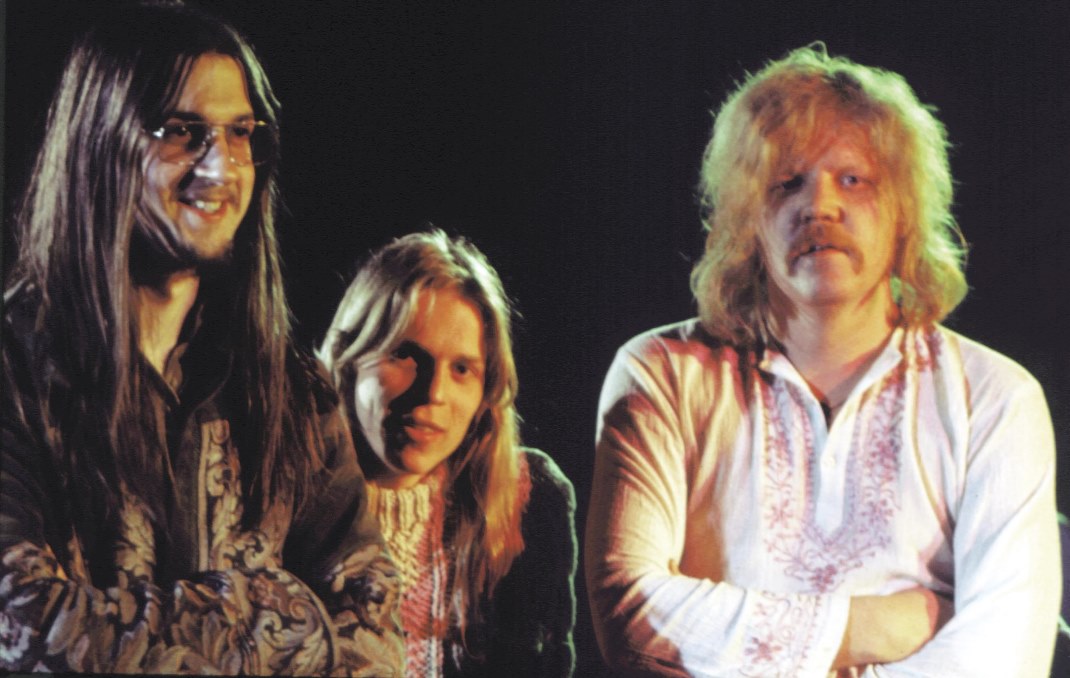
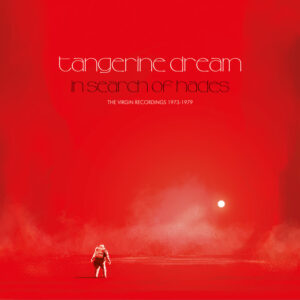
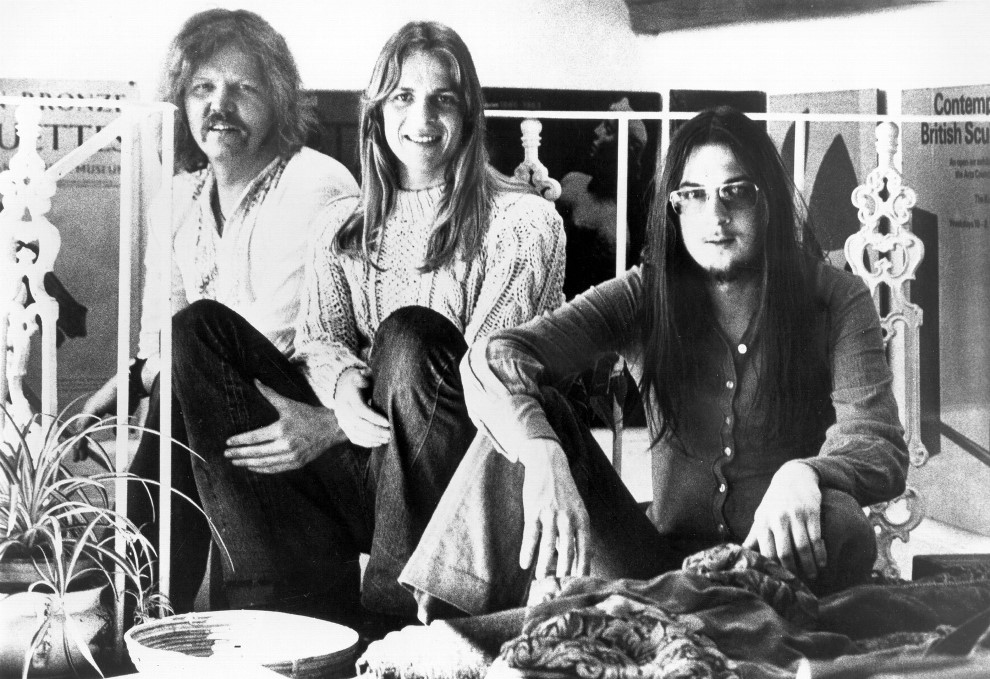
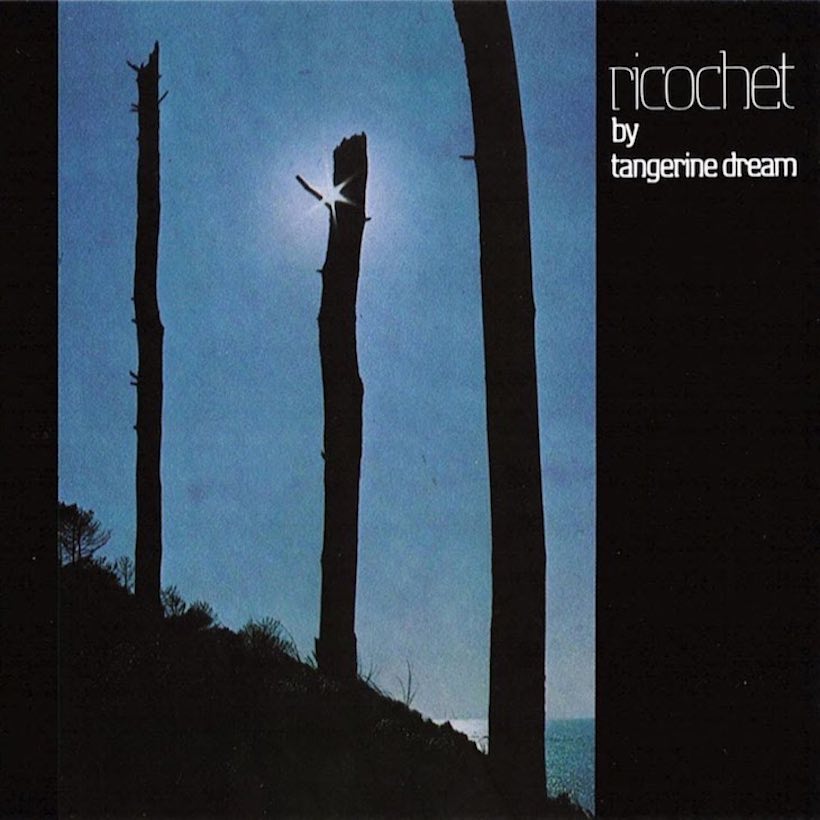
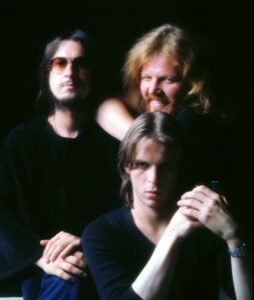
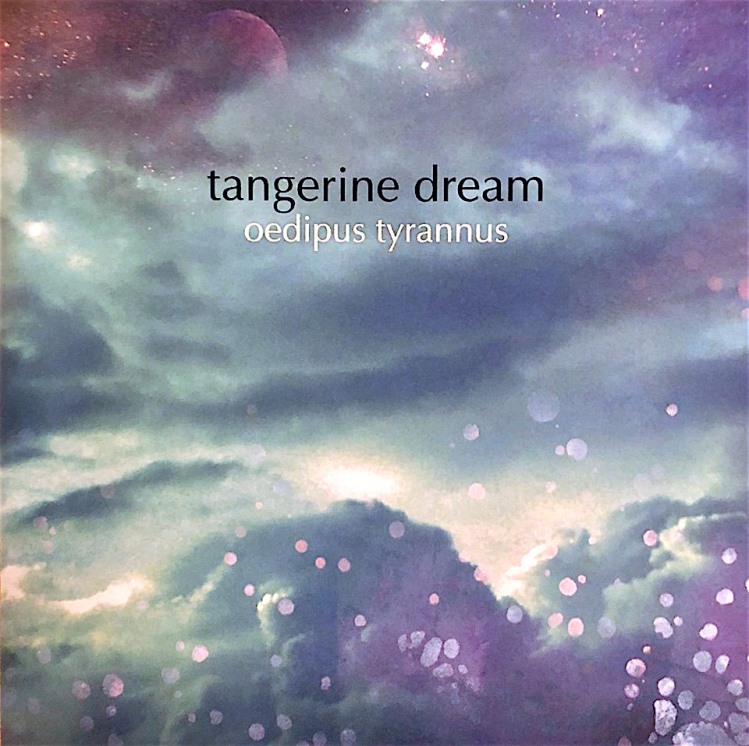
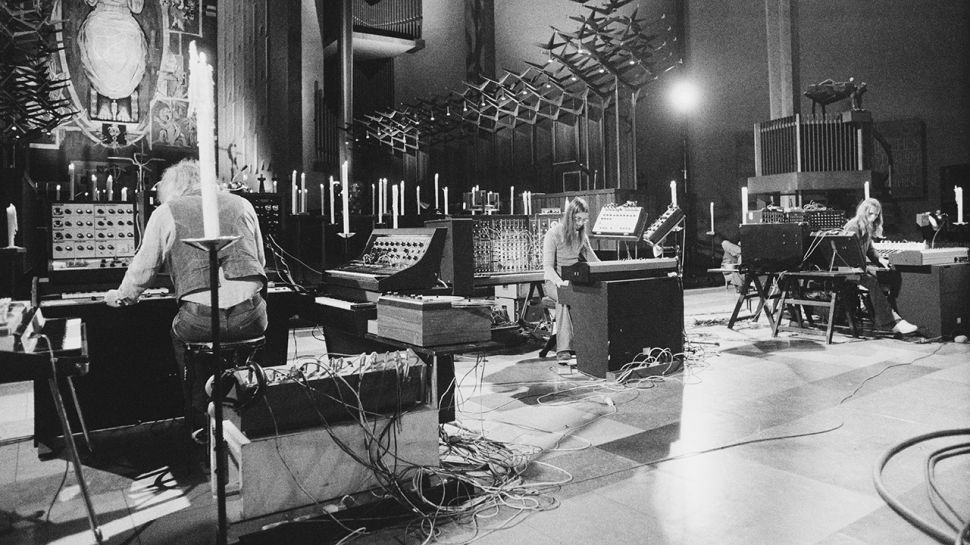
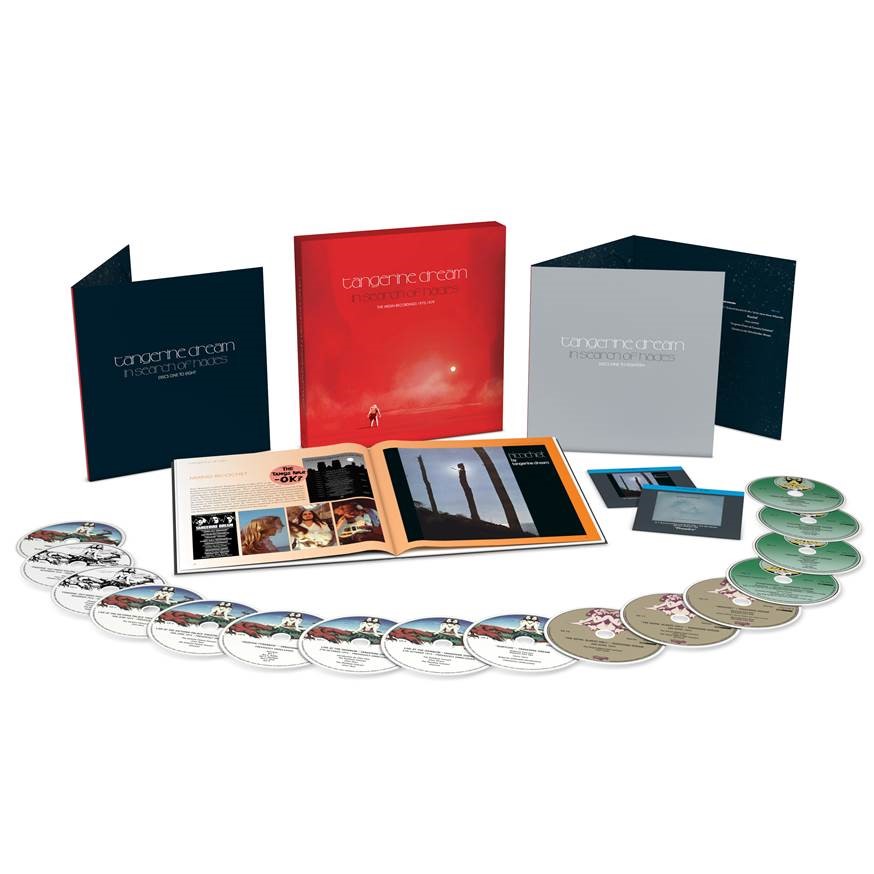
Follow Us!